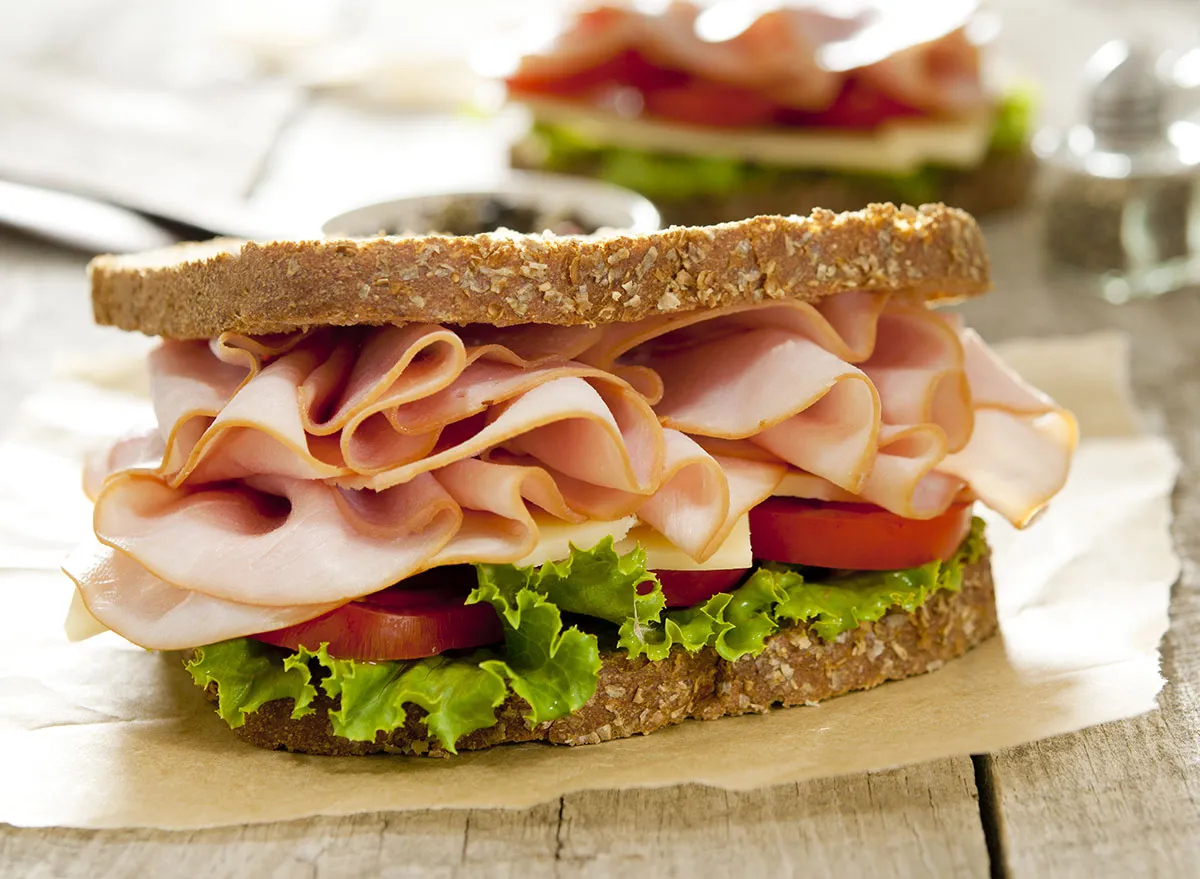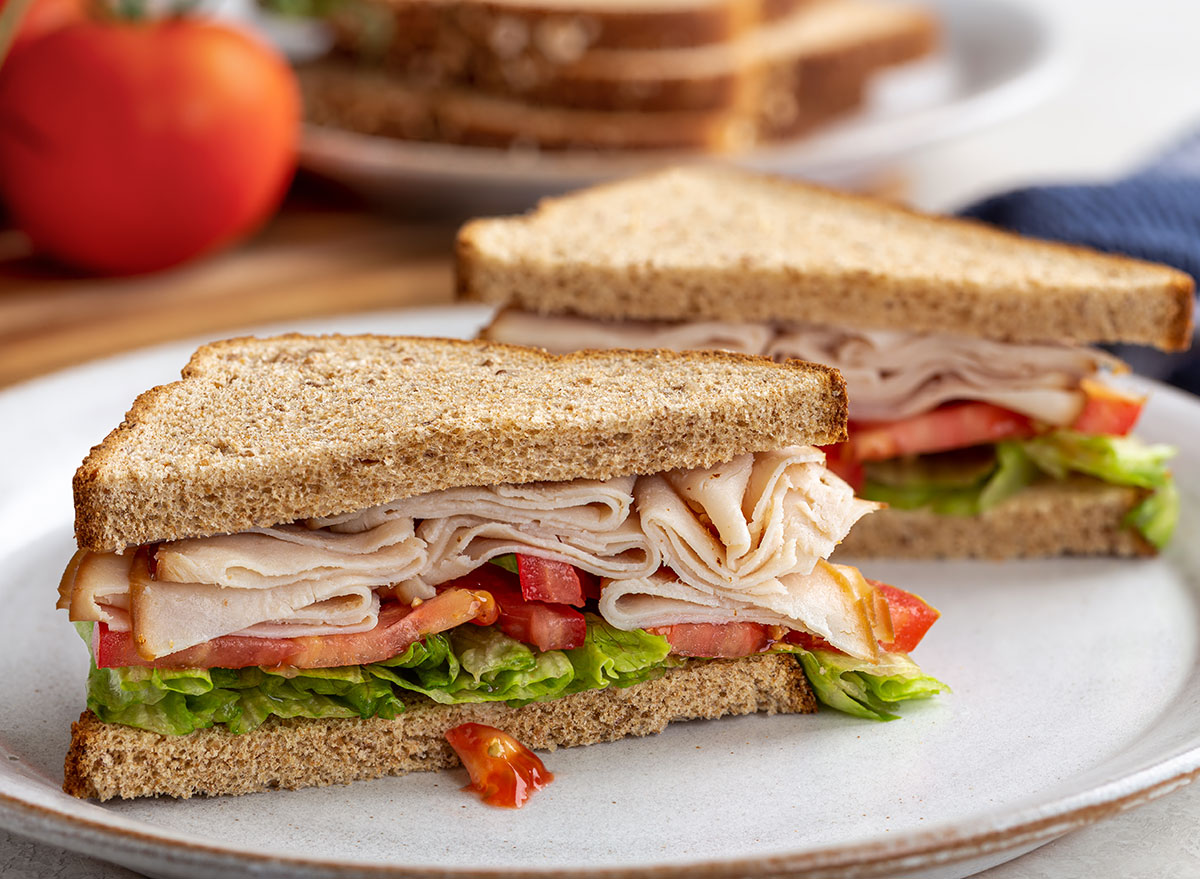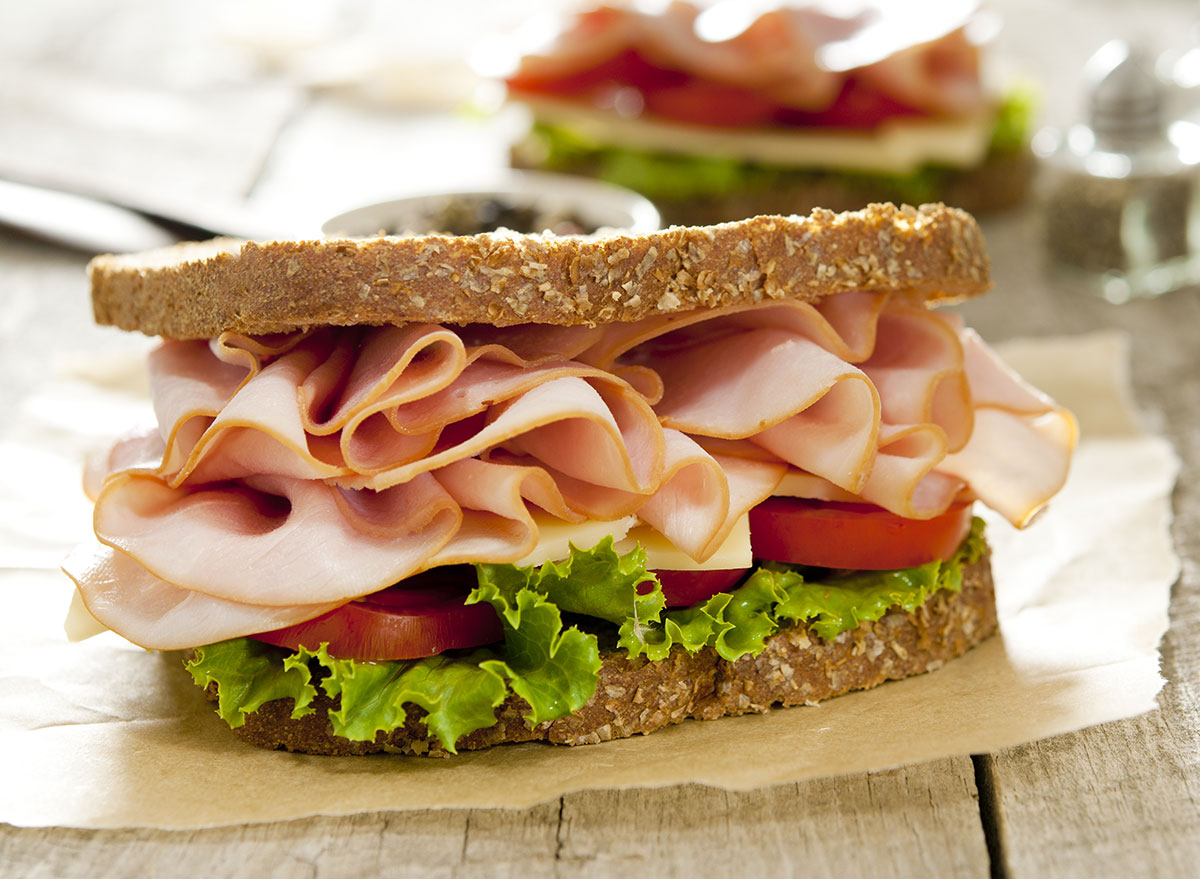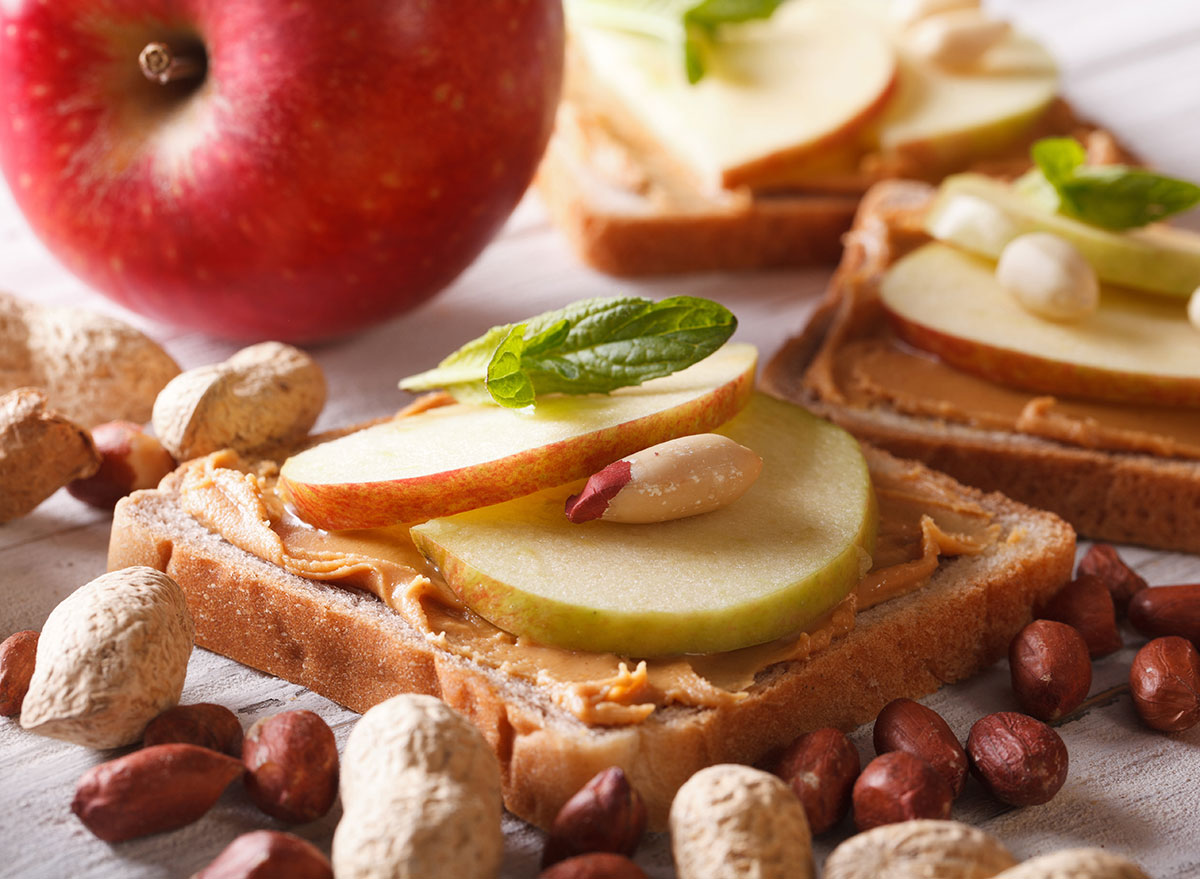Major Side Effects of Eating a Sandwich Every Day

You have probably heard many different opinions about sandwiches over the years. While some may avoid them altogether because of the carb-dense bread, others relish being able to have a complete meal compacted into a handheld option.
The good news is sandwiches are incredibly customizable, and, based on your food preferences, you can get creative with your ingredients to build a meal suitable for your energy and nutrient needs. (See: 25 Healthy Sandwich Recipes Under 500 Calories.)
Variety in food choices is valuable in providing a broad spectrum of nutrients, including vitamins, minerals, and antioxidants. Eating a sandwich every day can certainly fall in line with a healthful, well-rounded diet, and, to do so, it is important to incorporate different ingredients often to ensure adequate variety.
Here are the positives, negatives and everything in between that happens when you eat a sandwich every day. Read on, and for more on how to eat healthy, don't miss 7 Healthiest Foods to Eat Right Now.
You could be packing in the calories.

A sandwich is as healthy as the topping you use to build it. While there are toppings that add valuable nutrients and health benefits, many of the common sandwich toppings aren't quite as beneficial—and they're very high in calories.
For example, mayonnaise, aioli-type condiments, and high-fat cuts of meat (like salami, bologna, and bacon), are packed with calories and saturated fat, a type of fat that is not so good for heart health. Cheese is guilty of being high in calories and fat too, even though it can provide some important nutrients, like calcium and vitamin A.
While these ingredients may not be the most healthful options, it is perfectly fine to enjoy them in reasonable amounts (so, just not every day). Prioritize quality ingredients that provide more nutritional value and use these toppings sparingly to maintain a well-balanced sandwich that works within your calorie needs.
You'll load up on protein.

The most common topping on a sandwich is meat. Turkey, chicken, ham, or roast beef; take your pick! Deli meats are generally high in protein and very low in fat with the exception of fattier cuts, like salami. Protein is essential for many functions in the body, including fluid balance, the production of hormones and enzymes, and the maintenance and repair of tissues, like skeletal muscle.
When purchasing deli meat, keep an eye out for options that are free of nitrates and nitrites. There is some controversial research related to these additives, so it is best to limit them as much as possible.
Other common proteins for sandwiches include the "salads," like tuna, chicken, egg, and tofu. But, beware: they often are loaded with mayo which will add quite a bit of fat to your meal. If making your "salad" at home, swap traditional mayo for olive oil-based mayo or non-fat plain Greek yogurt for lower-fat alternatives.
You could notice water retention.

Popular sandwich ingredients, including deli meat and cheese, are high in sodium which may lead to water retention and mild swelling in your finger and toes.
Luckily, there are a couple of ways to lower the sodium content of your sandwich: Many meat brands offer lower sodium options to help minimize the salt content. (See: These Are The 10 Best Low-Sodium Lunch Meats to Buy.) You can forgo extra salt for pepper and herbs. And there are some noteworthy high sodium toppings you can limit, including pickles, sauces, and cheese.
For some healthy sodium swaps, replace pickles with crunchy fresh veggies and a drizzle of tangy balsamic vinegar. Sub out processed American cheese for less-processed cheeses, like mozzarella and swiss. Choose low sodium condiments, like mustard and vinegar. Or enjoy your sandwich open-faced or serve it in a lettuce wrap. Bread may not be an obvious source of salt in your diet; however, an average slice of bread contains about 150 milligrams of sodium.
You will get a hearty boost in fiber.

The amount of fiber in your sandwich will vary depending on the type of bread and the number of veggies you use. Fiber is a valuable nutrient with many important functions in your body. First off, it is incredibly filling which will help your meal feel more satiating and could offset snacking later in the day. Fiber also helps reduce blood cholesterol levels and maintain digestive regularity which can offset uncomfortable symptoms, like constipation.
With a wide array of breads to choose from it can be difficult to narrow down your options. When purchasing a loaf of bread at the store, look for options with "whole grain" or "whole wheat" as the first ingredient listed. Additionally, you can look at the fiber content within with nutrition facts panel. A great product is one that contains at least 1 gram of fiber per 5 gram of carb present in the bread. (This should help: The 8 Healthiest Breads to Eat for Weight Loss.)
To further boost the fiber content of your sandwich, you can load up on high-fiber foods like veggies, like spinach, tomato, sprouts, and purple cabbage.
You'll boost antioxidants.

Antioxidants are nutrients that help keep your cells healthy and functioning normally. Some vitamins are considered to be antioxidants, like vitamins C and E, and you can find many others packed into produce, including fruits, veggies, and even herbs. When you load up your sandwich with a variety of produce sources, you'll likely be boosting your antioxidant intake as well.
Some options are spinach, purple cabbage, beets, shredded carrots, tomato, roasted bell pepper, thinly sliced apples, and pears will bring an array of nutrients, texture, and flavors. Additionally, pack on the herbs for a major flavor and nutrient boost. Try basil (on its own or blended into pesto) or cilantro!
You may improve your heart health.

The types of fats included in your diet (and on your sandwich) can have a wonderful impact on heart health. Healthy fats are those that contain high amounts of unsaturated fats. These fats can reduce inflammation in the body and may even help lower LDL (bad) cholesterol levels which is a positive for heart health. More often than not these unsaturated fats are found in plant-based foods, like avocado, nuts, seeds, and olive oil.
My top picks for healthy sandwich fats are avocado and guacamole, pesto, hummus, a drizzle of olive oil, and chopped olives. If you are skipping meat on your sandwich, almond and peanut butter are great ways to introduce healthy fats that provide some protein, too. In addition to providing heart health benefits, these fats will also create a more satiating sandwich that will keep you feeling fuller, longer, just like these 10 Foods That Make You Feel Fuller Longer.
Read more:








